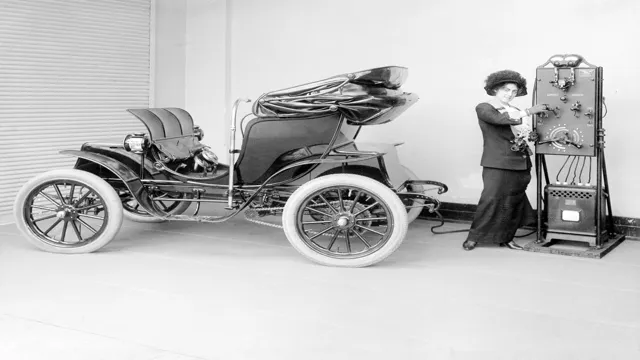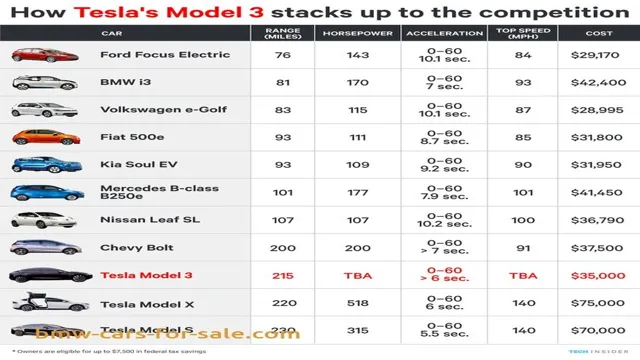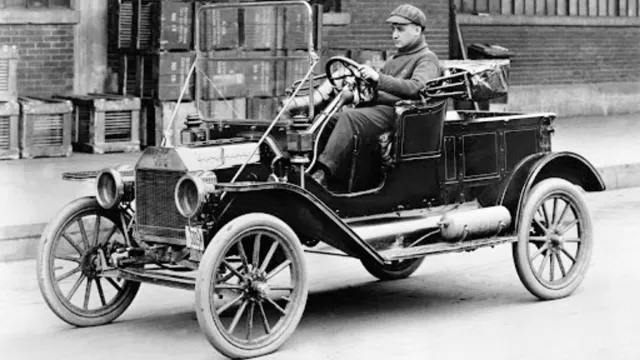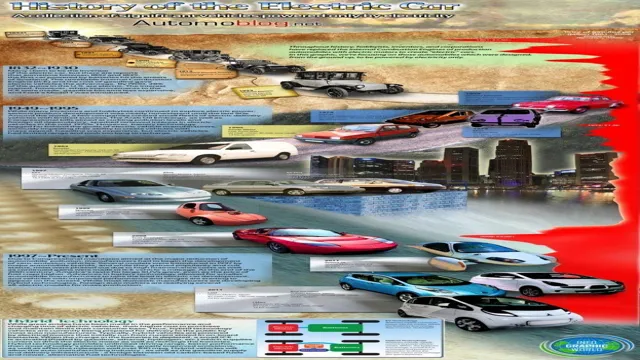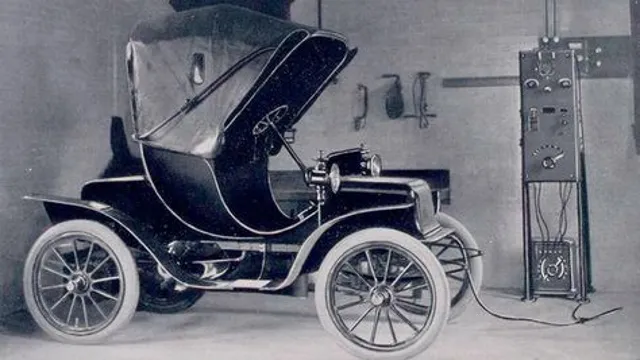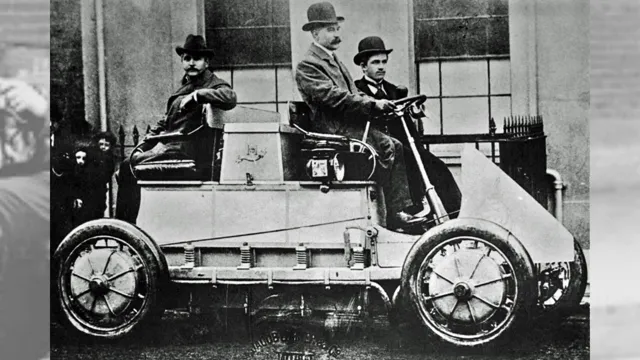The Evolution of Electric Cars: A Historical Journey in PDF
Electric cars have become incredibly popular in recent years, with more and more drivers opting for these eco-friendly vehicles. But did you know that electric cars have been around for over a century? The history of electric cars is fascinating, and it’s worth taking a deep dive into the past to better understand our current electric vehicle landscape. In this comprehensive guide, we’ll explore the history of electric cars, including their earliest beginnings and the challenges they faced along the way.
From the early days of electric cars to the modern day, we’ll cover it all in this informative PDF. So grab a mug of coffee and get ready to learn all about the evolution of electric cars!
Early Beginnings of Electric Cars
The early beginnings of electric cars can be traced back to the late 1800s when inventors began experimenting with electric motors as an alternative to gasoline engines. In fact, some of the earliest electric cars were designed and manufactured in the late 1800s by inventors such as Thomas Davenport, Robert Anderson, and Gustave Trouv. However, it wasn’t until the early 1900s that electric cars began to gain popularity, especially among women drivers who found them easier and smoother to operate compared to gasoline cars.
Despite the growing popularity of electric cars, their production and distribution were hindered by the lack of a standardized charging system and the high cost of batteries. As a result, the production of electric cars declined in the early 1920s, paving the way for gasoline-powered cars to become the dominant mode of transportation. Nevertheless, the history of electric cars played a significant role in shaping the modern-day electric car industry, which has seen a renewed interest in recent years thanks to advancements in battery technology and a growing focus on sustainable transportation.
Now, you can easily get a history pdf file on electric cars and learn more about the evolution of electric cars over the years.
From the 1800s to the 1920s
The early beginnings of electric cars date back as far as the 1800s when inventors began experimenting with battery-powered vehicles. One of the pioneers in this field was Thomas Davenport, who developed a small electric motor in 183 However, it wasn’t until the late 1800s that electric cars became more practical with the production of rechargeable lead-acid batteries.
In 1890, William Morrison, a chemist from Iowa, built the first successful electric vehicle in the United States. By 1900, electric cars were gaining popularity, particularly for women and urban drivers, due to their quiet operation and ease of use. Despite their advantages, electric cars faced numerous technical issues, low speed, high cost, and limited range, which hindered their wider adoption.
Nonetheless, electric car innovation continued throughout the early 1900s, with inventors exploring alternatives like nickel-iron batteries and improving performance to compete with gasoline-powered cars.
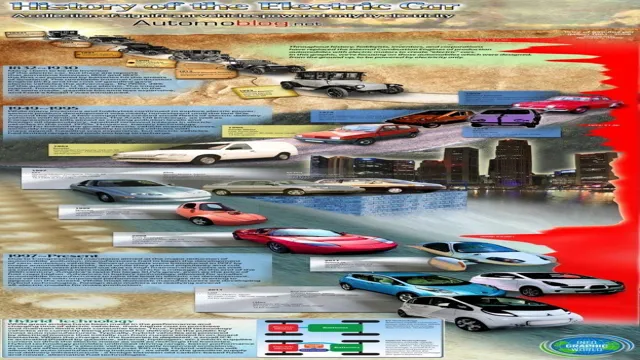
Advancements and Challenges
Electric Cars The invention of the electric car dates back to the early 19th century, but it wasn’t until the 21st century that electric cars experienced a significant surge in popularity. The first electric vehicle was invented in 1832 by Robert Anderson of Scotland. However, it wasn’t able to travel at high speeds or for long distances due to its limited battery capacity.
Over the years, inventors made significant advancements in the development of electric cars, including the creation of a practical rechargeable battery in the early 1900s. Despite these developments, electric cars struggled to become mainstream due to high costs and lack of infrastructure for charging. Today, thanks to advancements in technology and various government incentives, electric cars have become more affordable and accessible.
However, the challenge remains to create better and more efficient batteries that can power electric vehicles for longer distances.
Modern Era of Electric Cars
The modern era of electric cars can be traced back to the early 1990s, when several automotive manufacturers began releasing electric vehicles (EVs) that were more than just experimental prototypes. EV technology had been around since the 19th century, but it wasn’t until the turn of the millennium that it saw a resurgence in popularity. This was due in large part to concerns over climate change and the need to reduce greenhouse gas emissions.
Today, electric cars are becoming increasingly popular, with a growing number of manufacturers producing them and governments around the world offering incentives to encourage their adoption. If you’re interested in learning more about the history of electric cars, there are numerous resources available, including electric cars history pdf files that provide detailed accounts of the technology’s development over the years.
1960s to the 2000s
The modern era of electric cars began to take shape in the 1960s when General Motors introduced the first electric vehicle, the Electrovair II. However, it wasn’t until the late 1990s and early 2000s when electric cars began to gain traction in the mainstream market. The first mass-produced electric car, the Toyota Prius, was introduced in Japan in 1997 and quickly became popular in the United States.
Companies such as Tesla, Nissan, and Chevrolet began to focus on producing electric vehicles with longer ranges, streamlined designs, and more advanced technology. Today, electric cars are becoming more and more common on the roads due to their environmental benefits and lower operating costs. They are an innovative solution to the problems caused by reliance on fossil fuels, and as technology continues to improve, we can expect to see even more efficient and reliable electric vehicles in the future.
Are you ready to join the electric car revolution?
The Rise of Tesla and Other Key Players
The modern era of electric cars has witnessed a significant rise of Tesla and other key players in the industry. Tesla, in particular, has disrupted the traditional combustion engine market with its sleek and innovative designs, coupled with impressive ranges and charging capabilities. Its pioneering work in bringing electric cars into the mainstream has led to increased competition from other car manufacturers, such as Nissan and General Motors, who have also invested heavily in electric cars.
The benefits of electric cars are vast, ranging from being kinder to the environment, reducing fuel costs, and providing drivers with a quiet and smooth ride. With increasing concerns over climate change and the pressing need for emissions reduction, it is expected that the market for electric cars will continue to grow, and companies such as Tesla will play a significant role in shaping the future of transportation.
Government Support and Incentives
When it comes to promoting the use of electric cars, the government is taking on an active role. With the issues of air pollution and climate change becoming more pressing, governments around the world are implementing incentives to encourage drivers to switch to electric vehicles. From tax credits to free charging stations, these policies are making it easier for people to make the transition to electric cars.
For instance, in the United States, some state governments offer cash rebates worth thousands of dollars to people who buy electric cars. Moreover, there are federal tax credits that can significantly reduce the overall cost of electric vehicles. By supporting the growth of the electric vehicle industry, governments are playing a vital role in creating a sustainable future for the planet.
The support that the government offers is paving the way for the modern era of electric cars.
Current State of Electric Cars
Electric cars have been around for a long time, with the first electric vehicle being developed in the 1830s. However, it wasn’t until the late 1990s that electric cars started gaining some attention in the public eye. Back then, electric vehicles were mostly seen as experimental and inefficient, with small battery packs that could only provide a limited driving range.
Since then, technology has advanced significantly, enabling electric cars to go further than ever before. A lot of progress has been made in reducing battery size and improving efficiency, making them a practical and cost-effective option for many commuters. The history of electric cars can be found in many different forms, including electric cars history pdf files that outline the evolution of electric cars from the early days to the modern era.
Today, electric cars are gaining more and more popularity, with many consumers opting for them due to their environmental friendliness and cost savings. With the continued advancement in battery technology, electric cars are expected to become even more practical and efficient in the future.
Market Trends and Projections
The current state of electric cars is booming, with more and more people making the switch to this environmentally friendly mode of transportation. In recent years, electric cars have become increasingly popular due to advancements in battery technology, affordability, and the desire to reduce personal carbon footprints. In fact, the rise of electric cars has been so impressive that it is projected that global electric vehicle sales will surpass 4 million units annually by 202
This trend is not only due to consumer demand, but government policies that incentivize the use of electric cars, such as tax rebates and grants. As people become more environmentally conscious, electric cars are becoming a more viable option for the average driver. Although initial costs may be higher than traditional gasoline cars, the savings in fuel costs and maintenance expenses make up for it in the long run.
With more electric vehicle offerings from car manufacturers on the horizon, the trend towards electric cars is showing no signs of slowing down.
Environmental and Economic Benefits
Electric cars have increasingly gained popularity in recent years, as more people become aware of their environmental and economic benefits. These cars offer significant reductions in greenhouse gas emissions, air pollution, and noise pollution, making them an attractive option for environmentally conscious individuals. The global sales for electric cars have increased over time, with Norway leading the way with an impressive adoption rate of electric vehicles.
Moreover, countries like the United States, Germany, and China have also seen a rise in their electric vehicle sales. The current state of electric cars shows that they are not only environmentally friendly but also cost-efficient. While the initial cost of purchasing an electric car may be more than traditional petrol cars, the overall running costs are significantly lower.
Electric cars require less maintenance and have reduced fuel costs, making them cheaper to run. With the continued growth of the electric car market, it is clear that they are an excellent solution to both environmental and economic issues.
Conclusion
In conclusion, the history of electric cars has been a journey full of twists and turns, highs and lows, and plenty of sparks. From the early days of experimentation to the modern era of high-tech innovation, electric cars have come a long way. And while they still face some challenges, like range anxiety and charging infrastructure, they are no longer just a pipe dream.
With more and more automakers investing in electric vehicles, and governments around the world promoting their use, it’s clear that the future of transportation is electric. So, buckle up and get ready for a shockingly smooth ride into the future.”
FAQs
What is the history of electric cars?
Electric cars have been around since the early 1800s, but they did not gain popularity until the 21st century.
What are the benefits of owning an electric car?
Electric cars are environmentally friendly and cost-effective in the long run. They also require less maintenance than traditional cars.
How do electric cars work?
Electric cars use batteries to power an electric motor that drives the wheels. The batteries are charged by plugging the car into an electrical outlet or charging station.
What is the range of an electric car?
The range of an electric car varies depending on the make and model, but most can travel 100-300 miles per charge.
